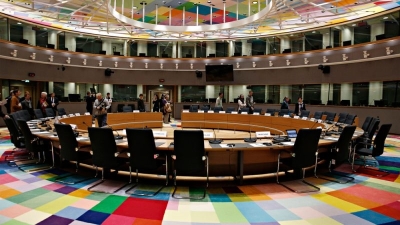There is no investment gap in Belgian market, telecom regulator says

The head of the Belgian telecom authority, Michel Van Bellinghen, told EURACTIV he sees no need for the senders-pay initiative and criticised the Commission for trying to recalibrate Europe’s telecom regime in favour of deregulation.
“We don’t see an investment gap in the Belgian market. Quite on the contrary, there is a gain of dynamism with a race to cover the whole territory,” said Van Bellinghen, the chairman of the Belgian Institute for Postal Services and Telecommunications (BIPT).
Van Bellinghen considers Belgium one of the lucky countries in Europe with infrastructure-based competition to roll out fibre networks. As a result, the regulator sees a context that encourages investments in new technology and infrastructure to benefit the users.
At the same time, the chairman admitted that retail prices are high in fixed and mobile networks compared to the neighbouring countries but noted that fixed networks are not really traffic sensitive.

EU Commission launches Connectivity Package with ‘fair share’ consultation
The European Commission put forth a Connectivity Package on Thursday, including measures to boost the rollout of high-capacity networks in Europe and a public consultation that might pave the way for Big Tech companies to chip in infrastructure costs.
Senders-pay initiative
In February, the European Commission unveiled a Connectivity Package including, among others, an explanatory consultation inquiring on the senders-pay principle, namely to make large traffic generators pay for the infrastructure costs.
The initiative comes from a long-standing grievance from telecom providers, which consider they bear the lion’s share of network investments, while Big Tech companies reap most of the economic benefits.
Van Bellinghen said that the BIPT does not see why an initiative from the Commission would be necessary, echoing an opinion of the Body of European Regulators for Electronic Communications from last October that challenges the assumption that there even is a problem.
He noted that both Big Tech companies and telecom providers encourage consumers to consume more, but that, ultimately, the consumer decides to choose based on speed or volume.
Moreover, the Belgian regulator added that the growth in terms of data traffic has been steady in the past years, even during COVID time when most people were stuck at home.
Thus, there are still no signs of exponential growth that might be driven by emerging technologies such as the metaverse, another key argument of the European Commission to justify a legislative intervention in this area.
Meanwhile, Van Bellinghen noted that the costs related to traffic volumes have been decreasing thanks to improvements in compression techniques and streaming protocols.
In addition, he pointed out that tech companies have been investing in infrastructure that is very much complementary to the one from telecom operators, such as data centres and local content delivery networks.
The chair of the Belgian telecom authority also cast doubts about the two formats floated to operationalise the senders-pay principle, arguing that a direct contribution would run against the open internet rules whilst a contribution fund might disincentivise telecom companies to invest.

EU Commission starts showing hand in questionnaire on ‘fair share’ initiative
The European Commission is set to open a consultation on the future of the connectivity sector, including whether digital players should contribute to deploying high-capacity networks like 5G.
Gigabit recommendation
Van Bellinghen also took aim at the Gigabit recommendation, another initiative part of the Connectivity Package that is meant to define how European telecom regulators should apply the European Electronic Communications Code.
“It’s not a secret that the Commission was not totally happy with the outcome of the Code five years ago,” he said, stressing that the recommendation is not fully in line with it.
In particular, the Belgian authority argues that with the recommendation the Commission is putting the emphasis on only one of the objectives of the Code, namely promoting the deployment of very high capacity networks, to the detriment of other objectives such as ensuring sustainable competition.
He also expressed that they have “huge concerns” about the recommendation’s approach of “treating on the same regulatory footing situations which are not comparable, like the mobile-only operator, the co-investment scheme, and commitment from an operator with significant market power”.
In other words, the Belgian regulator sees the Commission’s initiative as a push to deregulate the telecom market to give large telecom operators more incentives to invest in network upgrades.
“We are not in a situation where we can deregulate completely,” he concluded.

Gigabit recommendation – what impact on the telecom sector?
The European Commission has recently proposed a Gigabit recommendation as part of a broader Connectivity Package. We discuss the potential impact of the recommendation on the European telecom market with Kamila Kloc, Acting Director for Connectivity at the European Commission, …



